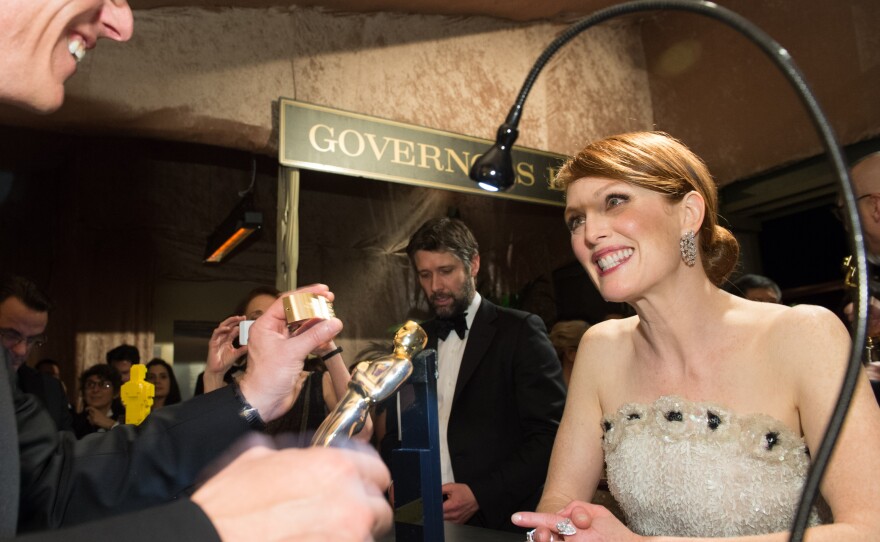The 87 Academy Awards were Sunday night and the top winners were “Birdman” and “The Grand Budapest Hotel” with four awards each. But the show was a rough and bumpy night.
Richard Linklater’s “Boyhood,” that had been rated an early film to win the Oscar, lost traction and walked away with one lonely award for Patricia Arquette for Best Supporting Actress.
Hollywood, apparently, had decided it loved stories about itself, even unflattering ones better than the indie family drama that had gained fame for being shot over 12 years. “Birdman” – with it’s tale of a Hollywood star who had played a superhero in a big franchise series and now was trying to get in touch with his artistic soul on Broadway – struck a chord with its voters that are by a large majority actors.

“Birdman’s” win was a bit of a surprise because from a filmmaking perspective it was more innovative and out of the mainstream than most Best Picture winners.

Biggest Surprise
But perhaps the biggest surprise of the night was how badly Neil Patrick Harris bombed. But it wasn’t his fault. The charming, multi-talented actor who proved his hosting skills on the Tony’s was burdened with some of the worst scripted material in years. He had a fun opening musical number that he breezed through and then the show screeched to a halt immediately after.

His best moments were musical or ad-libbed (or at least they appeared off the cuff). But when bound to the script, that included a running gag about his Oscar predictions, it was painful. The only scripted gag that worked was when NPH striped down for a spoof of "Birdman." This may be one of the worst Oscar shows in terms of pacing, writing, and senseless additions that dragged out the show.

Acceptance Speeches
This year’s nominations had been criticized for lacking diversity and in expected style, the Academy tried to make up for that in other ways.
It was embarrassing to see how desperately the Academy tried to prove that diversity with the show itself. There were constant shots of African Americans in the audience, especially Oprah, and a teary eyed standing ovation when “Selma” won best song.They even brought out their female African American president to give a little rallying speech. Good thing she’s held that office for a couple years now or it would have looked like another attempt by the Academy to save face. I don’t believe the Academy is racist or that individual voters deliberately tried to shut out artists of color, but it is quite clear that the pool of films they had to choose from lacked diversity, and that’s something Hollywood can't ignore and needs to address.
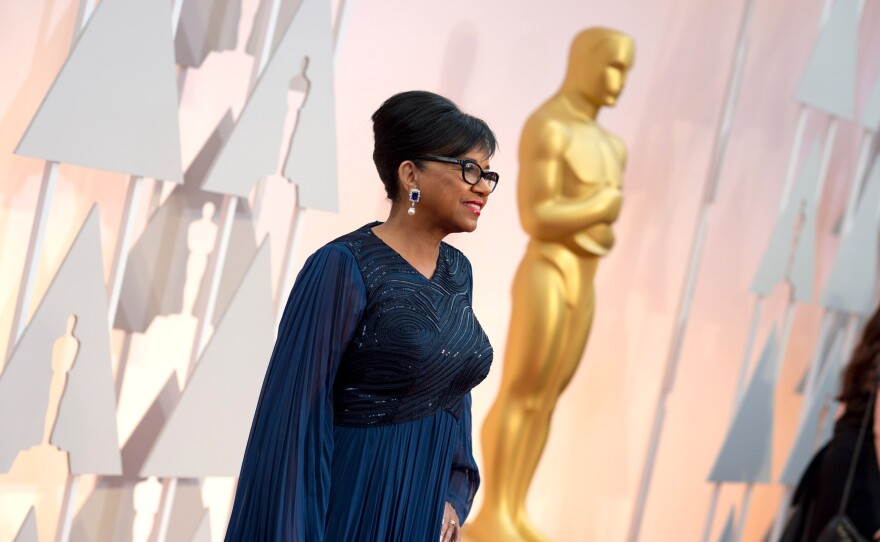
The problem stems from the lack of diversity behind the camera and that’s where the real effort needs to be focused if audiences want to see a change in the type of stories that get told. What the nominations revealed was just how out of touch the mostly white and mostly male voting membership of the Academy is.
But the focus on lack of diversity seemed to have prompted winners to add some political messaging to their acceptance speeches.
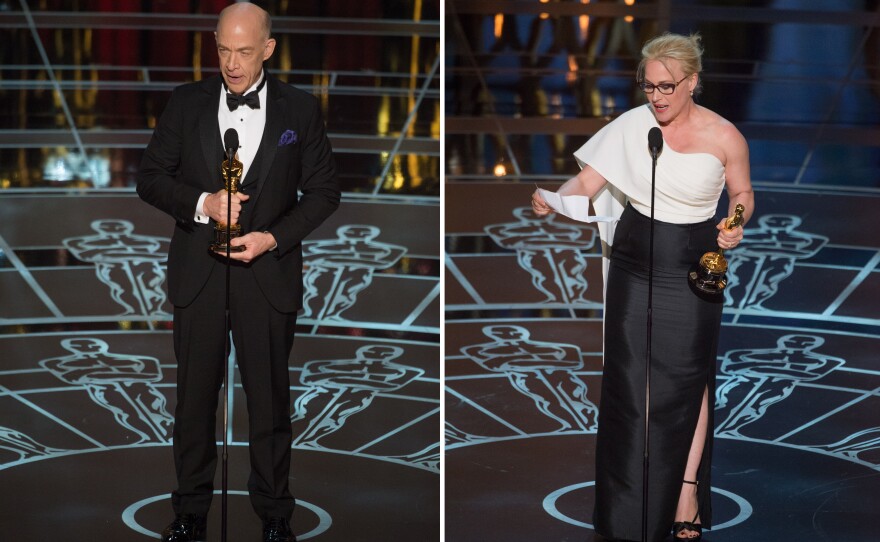
Patricia Arquette in accepting her Best Supporting Actress award concluded with this: “To my heroes, volunteers and experts who have helped me bring ecological sanitation to the developing world with GiveLove.org. To every woman who gave birth, to every taxpayer and citizen of this nation, we have fought for everybody else’s equal rights. It’s our time to have wage equality once and for all and equal rights for women in the United States of America.”
"Selma" had been shut out of the acting categories, only receiving a Best Picture and Best Song nomination despite critical acclaim. The film's lack of nominations was at the center of most of the criticism of the Academy. Best Song winners Common and John Legend did a nice job of drawing attention to issues without lambasting the Academy in particular.
Common: “Recently, John and I got to go to Selma and perform ‘Glory’ on the same bridge that Dr. King and the people of the civil rights movement marched on 50 years ago. This bridge was once a landmark of a divided nation but now is a symbol for change. The spirit of this bridge transcends race, gender, religion, sexual orientation and social status. The spirit of this bridge connects the kid from the South Side of Chicago dreaming of a better life to those in France standing up for their freedom of expression, to the people in Hong Kong protesting for democracy. This bridge was built on hope, welded with compassion and elevated by love for all human beings.”

John Legend: “Nina Simone said it’s an artist’s duty to reflect the times in which we live. We wrote this song for a film that was based on events that were 50 years ago but we say that Selma is now because the struggle for justice is right now. We know that the Voting Rights Act that they fought for 50 years ago is being compromised right now in this country today. We know that right now the struggle for freedom and justice is real. We live in the most incarcerated country in the world. There are more black men under correctional control today than were under slavery in 1850. When people are marching with our song, we want to tell you we are with you, we see you, we love you, and march on.”
Screenwriter Graham Moore, accepting his award for Best Adapted Screenplay for “The Imitation Game,” gave a very personal and genuine speech.
“Alan Turing [the gay character at the center of ‘The Imitation Game’] never got to stand on a stage like this and look out at all of these disconcertingly attractive faces and I do. And that’s the most unfair thing I think I’ve ever heard. So, in this brief time here, what I want to use it to do is to say this: When I was 16-years-old, I tried to kill myself because I felt weird and I felt different, and I felt like I did not belong. And now I’m standing here and, so, I would like for this moment to be for that kid out there who feels like she’s weird or she’s different or she doesn’t fit in anywhere. Yes, you do. I promise you do. You do. Stay weird. Stay different. And then when it’s your turn and you are standing on this stage, please pass the same message to the next person who comes along. Thank you so much.”
Later filmmaker Alejandro G. Iñárritu chose to accept the best picture award for “Birdman” like this: “Finally, I just want to take one second. I just want to take the opportunity. I want to dedicate this award for my fellow Mexicans. The ones who live in Mexico, I pray that we can find and build the government that we deserve. And the ones that live in this country who are part of the latest generation of immigrants in this country, I just pray that they can be treated with the same dignity and respect of the ones who came before and build this incredible immigrant nation. Thank you very much.”
Favorite Speech
But my favorite award and speech were for Poland’s “Ida,” which won Best Foreign Film. Pawel Pawlikowski, whose film was a glorious black and white work about a young novice about to take her vows, was quick to note the irony of his win: “We made a film about - as you saw, black and white - about the need for silence and withdrawal from the world and contemplation. And here we are at this epicenter of noise and world attention. Fantastic, you know, life is full of surprises.”
Best And Worst Of The Awards
One of those surprises, or more accurately I should say disappointments, were the main acting awards.

Eddie Redmayne won Best Actor portraying Stephen Hawking in “Theory of Everything” and Julianne Moore won Best Actress playing a woman with Alzheimer’s in “Still Alice.” Moore is a fabulous actress but she was brilliant in a mediocre film while Redmayne was impressive in a showy role where he had to contort his body to play someone with ALS.
Both awards prove yet again that a performer increases his or her odds of winning dramatically if they play characters that are sick or disabled.
Most of the technical awards went to worthy candidates like “The Grand Budapest Hotel” and “Whiplash.” But “Guardians of the Galaxy” and “Dawn of the Planet of the Apes” were robbed for the visual effects award by “Interstellar.” Both “Guardians” and “Dawn” deserves high praise and all the awards for proving that you can seamlessly integrate a fully computer generated character into a story. Kudos to them.
So although the show itself was painful to watch, most of the awards went to deserving winners. And I was glad to see J.K. Simmons win Best Supporting Actor as predicted for his killer work in “Whiplash.”
A complete list of winners is at the Oscar website.
Photo Gallery
Now for some photos. The red carpet always provides entertainment and this year was no exception. First some fashions do's and don't's.
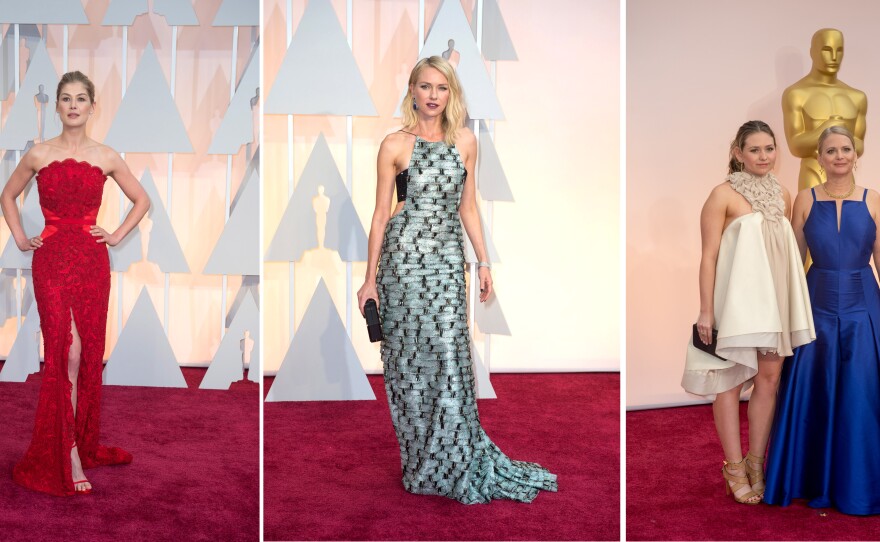


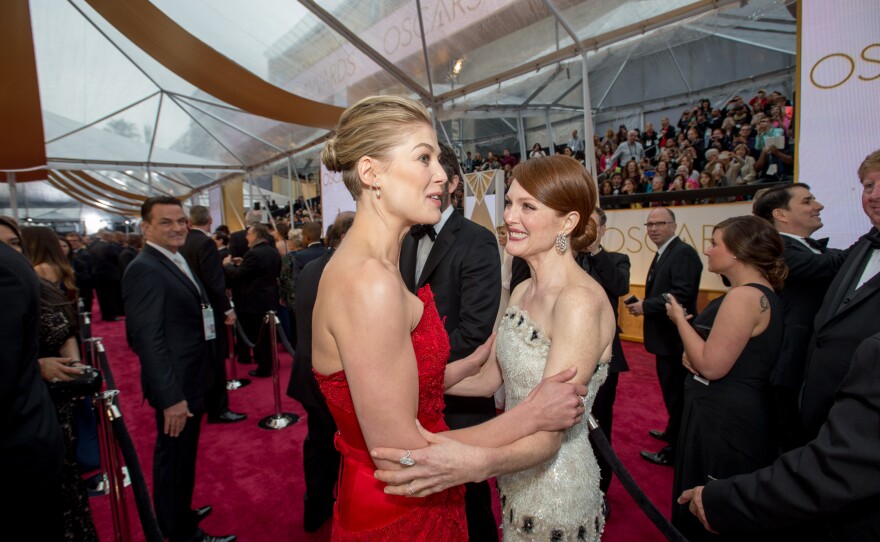
Lady Gaga arrived on the red carpet all in white with some oven mitt or superhero red gloves. Then she changed her look to perform a tribute to Julie Andrews. I guess that since Andrews came to fame in a Disney movie ("Mary Poppins" in 1964), Lady Gaga decided to look like "Frozen's" Elsa. I have to confess that I did ot recognize how Lady Gaga looked or even sounded, until she raised her arms and showed off her tattoos. She is a chameleon.

In case you didn't know this, the Oscars are blank when handed to winners. After the show they get to have them engraved with their names. That's kind of cool.
